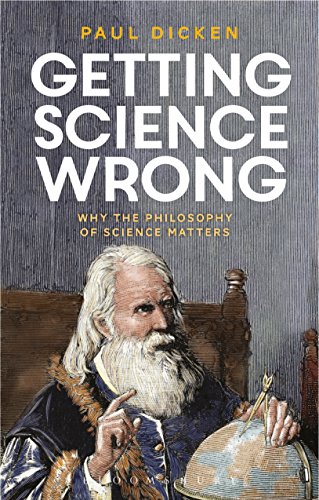
Getting Science Wrong (Bloomsbury, 2018)
When Galileo dropped cannon-balls from the top of the Leaning Tower of Pisa, he did more than overturn centuries of scientific orthodoxy. At a stroke, he established a new conception of the scientific method based upon careful experimentation and rigorous observation — and also laid the groundwork for an ongoing conflict between the critical open-mindedness of science and the recalcitrant dogmatism of religion that would continue to the modern day.
The problem is that Galileo never performed his most celebrated experiment in Pisa. In fact, he rarely conducted any experiments at all. The Church publicly celebrated his work, and Galileo enjoyed patronage from the great and the powerful; his ecclesiastical difficulties only began when disgruntled colleagues launched a campaign to discredit their academic rival. But what does this tell us about modern science if its own foundation myth turns out to be nothing more than political propaganda?
Getting Science Wrong discusses some of the most popular misconceptions about science, and their continuing role in the public imagination. Drawing upon the history and philosophy of science it challenges wide-spread assumptions and misunderstandings, from creationism and climate change to the use of statistics and computer modelling. The result is an engaging introduction to contentious issues in the philosophy of science and a new way of looking at the role of science in society.
“Paul Dicken’s Getting Science Wrong: Why the Philosopher of Science Matters is an engaging journey through deep philosophical waters. Dicken, a philosopher of science, works his way through some historic and recent episodes related to science and touches on philosophical debates as he goes. His book is written for a broad audience and many parts are gripping and fun … At times I laughed out loud.” Physics Today
“[So] beautifully, passionately written, in such an engaging, subjective manner, that it deserves a secure place on the library shelf, where it’s sure to influence, inspire, even transform the outlier student. Where else would you find a philosophy of science text that dared quote at length from Jean-Paul Sartre’s 1938 novel Nausea?” CHOICE
“It is very readable … [and] the book’s message is an important one and should serve as a great springboard for further discussion and exploration of the literature, or perhaps even as an introductory read to coursework.” The Inquisitive Biologist
“Paul Dicken takes us on a romp through the history and philosophy of science. This is a fun and accessible resource for anyone who wants to think more carefully about how science works.” Kevin Elliott, Associate Professor, Michigan State University
Articles, Book Reviews, and Marginalia
Privacy and the Good Life, Law and Liberty
Game On: Frank Lantz’s “The Beauty of Games”, The New Criterion 42(9)
Algorithmic Fortune-Telling, Law and Liberty
Specialized Nature: On the Opportunities and Challenges for Natural Philosophy, The American Conservative
Competing Paradigms: On the Last Writings of Thomas S. Kuhn, Los Angeles Review of Books
Aleister Crowley in England, Fortean Times 426
Singing the Blues: James Fox’s “The World According to Color”, The New Criterion 41(3)
Dusting Off Our Mirror-Shades: On Matthew Ball’s “The Metaverse”, Los Angeles Review of Books
Philosophy of Psychedelics, Fortean Times 421
Secularization Theses, The American Conservative
Theories of Conspiracy Theories, Fortean Times 420
Surveillance Humanism: The Unholy Union of AI and HR is Coming, The New Atlantis
The Women Who Restored Moral Philosophy, The American Conservative
The World is a Strange Madhouse: 100 Years of Relativity, Los Angeles Review of Books
Virtually Speaking: Are Digital Worlds Just as Real as Our Own?, City Journal
Debunking the Conflict Thesis, The American Conservative
The Computer Says … What?, Los Angeles Review of Books
Seeing Time: Einstein’s Theory of Relativity for Beginners, Los Angeles Review of Books
Are Scientific Theories True? The Philosophers’ Magazine
You Want to Write for a Popular Audience? Really? The Chronicle of Higher Education
